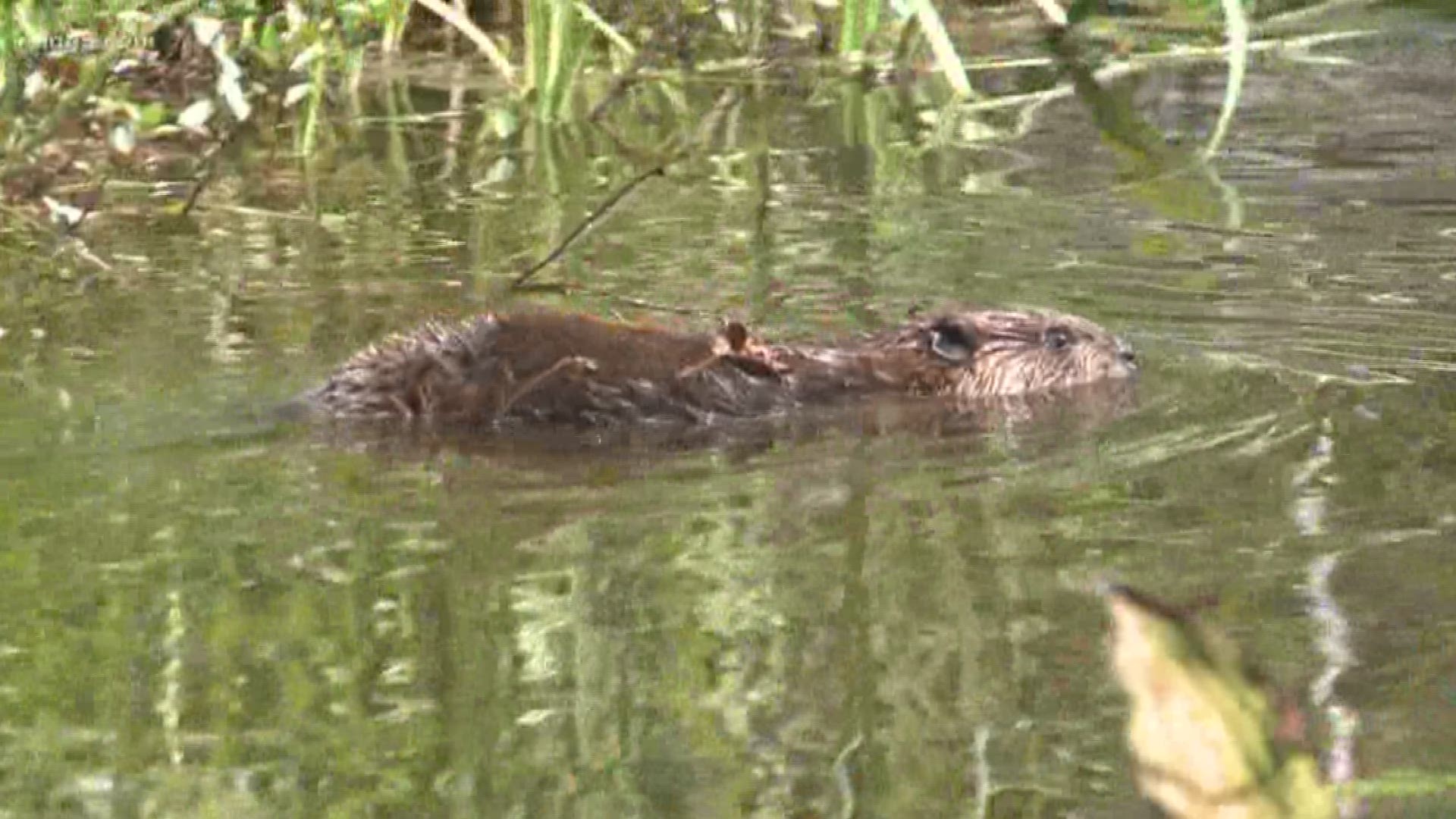SNOQUALMIE PASS, Wash. — Beavers trapped in King County this week are now swimming free in their new home in the Snoqualmie Watershed, and will hopefully improve habitat for salmon later on.
The four relocated Thursday are part of the Tulalip Tribe's Beaver Project. Beavers that are considered nuisance animals are trapped and taken to places where their activity will be more appreciated.
"These beavers came from an area where they were flooding a covert and flooding out a farmers field," explained Molly Alves, manager of the Beaver Project. "These beavers were actually slated for euthanasia so we came in and trapped them and are going to repurpose them for salmon restoration."
Beavers use their large incisor teeth to chew down trees and shrubs to access a layer beneath the bark called cambium. That leaves behind sticks and logs that beavers then use as building materials. They build dams to create a cover to escape predators like coyotes, bears, bobcats, and cougars.
Beavers were nearly eliminated from Washington state due to habitat loss and fur trapping. They're an important part of ecosystems, however, increasing freshwater storage and adjusting stream flow and temperature.
"In addition, beaver dams have been shown to reduce the effects of intense storms, recharge groundwater, retain water in the summer and decrease high winter flows," according to the Beaver Project. "They also transform the landscape by increasing grazing opportunities for deer, elk, and other game species, while also creating a more productive landscape for birds and amphibians to utilize."
The project began in 2014 and since then, about 150 beavers have been relocated.
"They are still considered to be a recovering species in the state but their populations are much more concentrated in the Puget Sound lowlands where there are obviously many more people, so they get themselves into trouble," Alves said.
"We are seeing watersheds that are much more diminished than they were historically when beavers were more widespread in the landscape. The benefits of returning these beavers to these natural areas is that they will impound water which is incredible salmon-rearing habitat," said Alves. "The dams that they build filter toxins out of the water, they slow and cool water which is especially important in our changing climate, especially in Washington where we see drought and wildfires."

